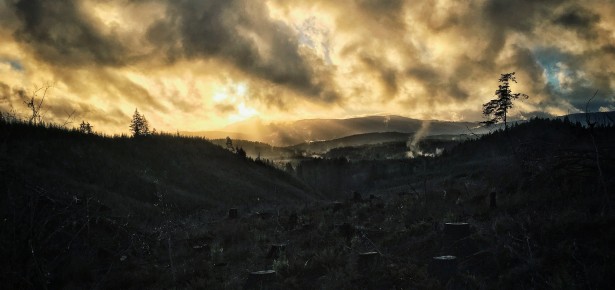
Since 2007, global efforts to fight climate change have included measures intended to reducing carbon emissions from deforestation, forest degradation, and support the sustainable conservation of forest carbon stocks in developing countries. An international mechanism known as REDD+ seeks to channel climate finance from North to South in order to shift incentives away from activities that lead to forest loss toward those that increase forest carbon sequestration. Because of its potential to protect forests, reduce an estimated 17% of the world’s greenhouse gases, and contribute to poverty alleviation efforts, REDD+ has gained significant traction during the past decade. With the support of multilateral institutions, bilateral aid organizations, NGOs, and corporations, a wide array of public and private REDD+ initiatives and projects have been launched in 60 countries across Africa, Asia, Latin America, and the Caribbean in order to reduce forest-based carbon emissions throughout the developing world.
The emergence and spread of REDD+ has also attracted significant controversy however, particularly in terms of its potential implications for Indigenous Peoples and local communities that live in or depend on the forests of the developing world. On the one hand, REDD+ may provide new funds for the recognition and protection of the traditional lands of Indigenous Peoples and local communities, as well as opportunities to foster community-based approaches to forest governance and sustainable livelihoods. On the other hand, given their technocratic focus on carbon sequestration and potential to generate unintended incentives for land grabbing, REDD+ activities may marginalize the interests of forest-dependent populations and dispossess them of their traditional rights to forests, lands, and resources.
It is with this paradox in mind that I wrote Forest Preservation in a Changing Climate: REDD+ and Indigenous and Community Rights in Indonesia and Tanzania. I was interested in understanding how and to what extent REDD+ had affected the recognition and protection of the rights of Indigenous Peoples and forest-dependent communities in developing countries. My book reviews in what ways multilateral institutions and private standard-setting programmes have incorporated human rights principles and obligations into the rules and guidance that they provide for the pursuit of REDD+. The bulk of the book features in-depth qualitative case studies of the effects of REDD+ activities on human rights in Indonesia and Tanzania that I developed though semi-structured interviews, legal analysis, and participation-observation. My findings highlight the serious challenges as well as unexpected opportunities that the pursuit of REDD+ holds for advancing the rights of Indigenous Peoples and local communities at the national and local levels and underscore the need for employing a rights-based approach to developing and implementing REDD+ activities. The comparison between these two countries also underscores the ways in which legal, environmental, economic, and political factors may affect the implementation of REDD+ in different contexts.
My book emphasizes two important points that will be key to the success of the Paris Agreement. First, governments, NGOs, and businesses should support REDD+ initiatives that maximize the potential synergies between reducing carbon emissions from forest-based sources in developing countries and the realization of the human rights of Indigenous Peoples and forest-dependent communities, including their collective rights to manage forests and their resources. Second, when countries support or implement REDD+ activities, they should therefore abide by the Paris Agreement’s admonition to “respect, promote and consider their respective obligations on human rights.” However urgent the climate crisis may be, solutions for a low-carbon future should not come at the expense of the rights of the marginalized communities that they ultimately seek to serve.
This book has been released under a creative commons license that makes it free to download and share. Click here to download the open-access version of Forest Preservation in a Changing Climate: REDD+ and Indigenous and Community Rights in Indonesia and Tanzania by Sébastien Jodoin.
Latest Comments
Have your say!